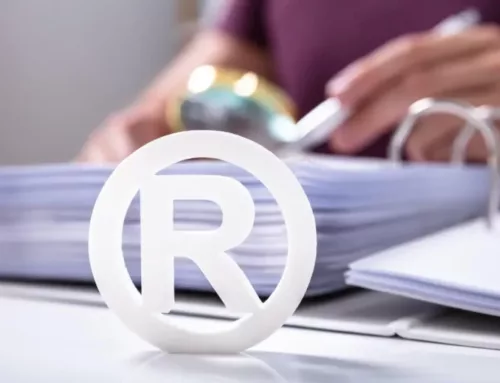When filing to register an official trademark, businesses and individuals should be aware of the registration requirements for United States trademarks. Filing a trademark application is one of the most important things an individual or business can do to protect their intellectual property. Failing to meet the registration requirements can cause delays and other complications that impede an entity’s ability to protect itself from unfair competition by other entities.
For more information on the trademark requirements of the United States and other intellectual property concerns, contact the team of experienced intellectual property lawyers of War IP Law, PLLC at (202) 800-3754.
Trademarks Must Be Distinctive
Preventing consumer confusion is one of the main reasons to file a trademark application. Thus, a trademark must be unique if it is to be accepted. A trademark helps distinguish a certain product or set of products as originated with one producer or source. Trademarks are commonly rejected due to bearing too much resemblance to the trademark of another source or producer of goods, which can confuse consumers.
The concept of distinctiveness was established by the landmark case Abercrombie & Fitch Co. v. Hunting World 537 F.2d 4 (2nd Circuit 1976). This case outlined the following spectrum of distinctiveness for trademarks:
- Arbitrary – Arbitrary trademarks are usually common English words that are used in a context unrelated to the products offered by the company, such as Apple Computers. Arbitrary trademarks are immediately eligible for registration.
- Fanciful – Also known as an “inherently distinctive” trademark, fanciful trademarks consist of an entirely made-up sign or word that has no meaning outside of the company, such as Pepsi, Xerox, or Polaroid.
- Suggestive – Suggestive marks hint at certain qualities of the products or services offered under the trademark but do not explicitly describe the characteristics. Netflix is an example of a suggestive trademark, as “net” alludes to the internet, and “flix” is slang for films, implying a service that offers films over the internet.
- Descriptive – A descriptive trademark is a word with a dictionary definition that is used to describe the product or services offered under the trademark. A descriptive trademark will only be accepted if there is a secondary meaning that leads consumers to associate it with a certain brand name. An example would be Coca-Cola, as it is a cola made from coca leaves.
- Generic – Common terms used for products or services in the context of the way they are intended to be used, such as a clothing company simply called “clothing.” Generic terms cannot be used as trademarks because any entity has the legal right to use these terms to describe its products and services.
The Trademark Must Be Used in Commerce
The trademark applicant must file to register the trademark on the basis of actual use or intent to use the trademark in commerce.
Applications filed on the basis of actual use should outline what products the applicant has already used the trademark on and sold in commerce. The court may deem the trademark in “actual use” if it has been used or displayed in the advertising or sale of goods or services which were actually provided to consumers.
For “intent-to-use” trademark applications, the applicant will simply need to make an official good-faith statement that they plan to use the trademark for commerce purposes. However, the trademark must actually be used before it can be registered. After it has been used, the applicant can file a “Statement of Use/Amendment to Allege Use” form to request approval of the trademark, along with a real-world example of how the trademark is currently in use on goods or in association with a service and a drawing of the trademark.
The Trademark Must Be Filed Under the Name of the Owner
A trademark application must be filed under the name of the trademark owner. Legally speaking, the owner of a trademark is the entity that controls the type and quality of the goods or services offered under the trademark. Trademark owners can be individuals, partnerships, corporations, or associations. In cases where the owner of the trademark is a corporation, the applicant’s name will simply be the name of the corporation.
Additionally, the trademark applicant must specify what type of entity they fall under and their national citizenship. Even though United States citizenship is not a requirement in and of itself, international trademark applicants do have additional requirements when applying for a United States trademark registration. The address of the owner should also be included in this portion of the application.
Requirements For International Trademark Applicants
The registration requirements for United States trademarks do not require applicants to be United States citizens or to own United States businesses. International applicants can still apply to register a trademark in the United States. However, foreign applicants must be represented by an attorney licensed to practice in the United States if the applicant does not have a domicile within the United States, according to the requirements of the United States Patent and Trademark Office (USPTO).
At War IP Law, PLLC our team of intellectual property lawyers offers legal assistance to anyone seeking legal guidance on United States trademarks and other intellectual property matters in the United States.
Legal Guidance For Trademark Registration and Other Intellectual Property Matters
Regardless of whether a trademark applicant is domiciled in the United States or not, legal guidance throughout the trademark registration process can prove useful for many applicants. The USPTO also recommends that all applicants consider hiring an attorney to guide them through the trademark registration process. An attorney with experience in these cases can use their knowledge to help clients fulfill all registration requirements for United States trademarks, accurately prepare applications, and represent them in appeals for denied trademarks.
At War IP Law, PLLC our dedicated team of intellectual property lawyers regularly helps our clients with trademark registration and a variety of other intellectual property concerns. We’re prepared to help individuals and corporations protect their goods and services through trademark registration. Contact us today at (202) 800-3754 with questions about trademarks and other intellectual property matters.







